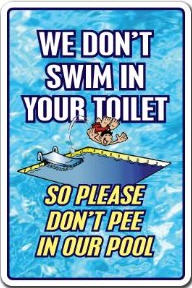My take on fan fiction:
This past week I saw a blog post where someone pointed to “the real canon of Harry Potter.” Now, I’m not a Rowling fan. I have yet to read any of her books, although I’ve seen a couple of movies based on them. I have heard many people criticize the Rowling books for various reasons, and, in a nation of free speech, that’s your right, of course. But this particular situation took it too far and really riled me up. They implied this fanfic was better than Rowling’s version, the only true version. It was a complete alternate history of HP, told by this fan, who explained herself with diatribes about her issues with it. Boy, do I have an issue with that. And then a few days later, I saw a post about writer whose entire book had been plagiarized almost word for word and posted as fanfic by a person who changed the character names and then even went as far as to make up posts about their challenges during the writing process.
 I have never written fanfic and I long ago stopped even attempting to read it. Like many, I sought out fan fiction as a way to get more time with characters and in worlds I’d fallen in love with. My hopes were high for a new escape and recapturing all the emotions I felt when I read the original. Unfortunately, I found that most fanfic is a poor imitation. Are there talented writers writing fanfic? Yes. But it’s not my point that no talent exists in the pool. Some even practice their craft and develop it writing that. I get it. But from quality and style to plotting and other factors, a majority of it, in my experience, just isn’t the same, and, frankly, all too much of it was just not good at all. But on top of that, I always had doubts because of an inner belief that it’s not legitimate. And although I’ve not written anything popular enough to inspire such imitation, I’ll respond as if I had, because this is pretty much how I’d feel if it happened that way.
I have never written fanfic and I long ago stopped even attempting to read it. Like many, I sought out fan fiction as a way to get more time with characters and in worlds I’d fallen in love with. My hopes were high for a new escape and recapturing all the emotions I felt when I read the original. Unfortunately, I found that most fanfic is a poor imitation. Are there talented writers writing fanfic? Yes. But it’s not my point that no talent exists in the pool. Some even practice their craft and develop it writing that. I get it. But from quality and style to plotting and other factors, a majority of it, in my experience, just isn’t the same, and, frankly, all too much of it was just not good at all. But on top of that, I always had doubts because of an inner belief that it’s not legitimate. And although I’ve not written anything popular enough to inspire such imitation, I’ll respond as if I had, because this is pretty much how I’d feel if it happened that way.
Basically, in my mind, fanfic is someone else ripping off a creator’s world and work and twisting it in whatever way they see fit. And that’s not freedom of speech, it’s copyright infringement, plain and simple. Fanfic might be said to be a form of flattery or mockery or criticism, but to me the latter two are more applicable and neither justifies it. You want to critique, write a review. What gives you the right to take a world I or someone else created and make up your own alternate history for the characters? Don’t get me wrong, I’d be flattered if anyone liked my world enough that it inspired them to create. But the flattery stops when they publish something using my intellectual property. It’s mine, not yours. For you to go in and mess with the plots, characters or worlds is disrespectful to my vision along with being illegal use of my intellectual property. Okay, maybe you don’t like how I write it. I don’t care. It’s mine, not yours. And I reserve the right to take whatever legal action necessary to shut you down. No, I don’t care if that alienates you. Go make your own world and characters. Sell them. Get rich. Get popular. Great. But leave mine alone. You may be a talented writer, but if all you’re doing is writing about someone else’s characters without their permission the implication is you lack the creativity to create your own world.
That being said, I have a couple of friends who got their start through fanfic. Both are talented writers, but I respect them on the merit of their own original work, not their fanfic. One is even a bestselling novelist now. I understand fandom and the attachment one can feel to certain properties. I feel that way about Star Wars, Star Trek (to a lesser degree), Majipoor, Narnia, and Middle Earth. I love visiting them over and over and imagining them. I love wondering about characters and various aspects. It can be wonderful fun. But no, that doesn’t change my mind at all. I don’t like fanfic. It’s not a legitimate use of someone else’s intellectual property and never will be. The sole exception is cases where an author sets up a fanfic site and encourages it. Then permission to play is implied by the site’s creation and the official authorized publication. But that fanfic still is just fans playing, not creating canon. And yes, I know it’s established in fandom. So is selling drugs on street corners, which doesn’t make it legal. The established existence of patterns does not make the pattern less of a violation. If I joined a cult and the cult leader was sleeping with young girls and I objected, should I accept his argument that it’s their tradition and I am just ignorant of their ways? And don’t give me the argument about the damage caused by sex v. fanfic. I’m talking about the morality of violating one law v. another. Both are equally violations regardless of consequences even if the law treats them differently in sentencing.
I would think that if you write fanfic on my world and characters, you obviously are impressed with me. You may not like what I did with it, but it’s my right with my property, not yours, plain and simple fact. I won’t read it, honor it, or in any way attempt to recognize its legitimacy or allow it to influence my writing, worldbuilding or plotting. I will ignore it as if it never existed. If I violate it in every way, I won’t care if you complain your is better. It’s not better. It’s a bastard distortion of the real property I created. It has no bearing on canon. It’s not even related to canon. It’s not real. It’s not true. It’s lies. It’s someone’s attempt to piggyback on my hard work without putting in their own sweat. I never bothered to invest myself in Star Wars, Star Trek, or other fanfic (I am not talking about tie-in books) because I knew all this already and believed it. So what if it’s good? Why emotionally or mentally invest myself in something Roddenberry or Lucas could turn around and undo in a month? They have the right to decide what happens, and only they do. I want the real story, whether it turns out how I expect or like. Whether they revise it and change it so much it loses its power or not. Yeah, Lucas did a crappy job with 1-3. Yeah he made some changes to the originals I wish he hadn’t. His property. His right. I’ll cherish the memories I have of the original versions. Even save the VHS’ and DVD’s so I can watch them that way. That’s my right. But at least the person whose blood, sweet and brain power originated it is doing what they want. I salute them. If on the other hand, an author, such as S.M. Stirling, chooses to encourage fanfic, that’s their right. I respect that.
I respect fans. I honor their passion. I honor their desire to see more of the characters and worlds they love and their desire to be creative. But at the same time, I think a line is all too often crossed. And their time would be better spent pooling that creative energy and passion into creating stories like they’d like to read with their own characters and worlds than by copying someone else. Oh, I know many will disagree with me, but if they have not sold or written their own works, they really are missing a key point of reference to understand where I’m coming from. So, I’ll give notice, if my work ever actually gets that popular (which seems unlikely, yes, now that I’ve alienated a bunch of fans), keep this in mind: Don’t piss in my pool. Consider the sign posted.
NOTE: After careful thought and consideration, I have decided not to allow comments on this post. I rarely see comments on my blog anyway, despite getting 1500+ hits this month. And given the vitriol with which all too many express their opinions about this volatile topic, I don’t want to get into a situation of fighting off trolls or arguing. While certainly good debate is healthy, in this case, I am posting my personal opinion on a topic I feel strongly about and about which I prefer not to debate. You and other authors can have your opinions, I respect that. But I have formed this opinion since I first discovered fanfic twenty-four years ago in college and believe me, you’re not going to change my mind.
Bryan Thomas Schmidt is the author of the space opera novel The Worker Prince, the collection The North Star Serial, and has several short stories forthcoming in anthologies and magazines. He’s also the host ofScience Fiction and Fantasy Writer’s Chat every Wednesday at 9 pm EST on Twitter, where he interviews people like Mike Resnick, AC Crispin, Kevin J. Anderson and Kristine Kathryn Rusch. He can be found online as @BryanThomasS on Twitter or via his website. Excerpts from The Worker Prince can be found on his blog.






